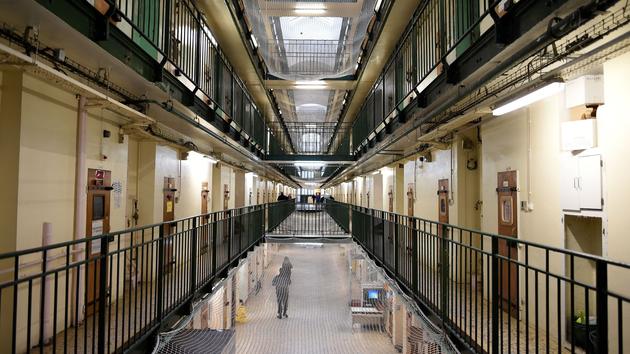Charles Prats is delegate for the development of the Professional Association of Magistrates (APM), vice-president in charge of liberties and detention at the Paris court.
Dominique Matagrin is honorary president of the MPA, honorary magistrate.
The epidemic of Covid-19 will involve very heavy constraints on the criminal jurisdictions, the penitentiary establishments, the prisoners, the services in charge of the judicial extractions and the units in charge of the escorts of prisoners and police of audience.
In the event of a major spread of the virus among staff and the prison population, judicial extractions will be materially rendered almost impossible in the state of our justice means. Already a case of coronavirus has been declared at the Fresnes prison where nearly 2,200 prisoners are staying in hygienic conditions to scare the virus itself ... What will happen if the prison population is massively contaminated? Will prison administration, police and gendarmerie personnel be equipped to cope? What if these personnel exercise their right of withdrawal with regard to the health situation? In addition, we can clearly see the danger of the spread of the virus represented by daily movements of judicial extraction, whereas populations should be confined to protect them as much as possible, including detained persons.
Prison establishments do not have sufficient videoconferencing equipment.Certainly the law provides for the use of videoconferencing for a certain number of hearings, but detainees can refuse the use of this modality. Even if the judge can override this refusal and consider that a judicial extraction of the detainee could in particular undermine public health order in the context of a global epidemic, the fact remains that our courts and our penal establishments do not have sufficient videoconferencing equipment to make general use of the provisions provided for in this case by the Code of Criminal Procedure. We may not have enough time to massively increase the operational videoconferencing capacities of the courts and penitentiary establishments. The situation could be even more tense if a significant proportion of the magistrates of the judicial order or escorts were to be reached and therefore to be put on sick leave.
We cannot take the risk that particularly dangerous detainees, in particular those charged with acts of terrorism, will be released in the event of the incapacity of the services to ensure judicial extraction and escorts due to the epidemic In progress.
It would therefore be particularly useful to urgently adopt an exceptional legislative provision, allowing at least the absence of the detained person during the debates to extend his pre-trial detention, when a major health crisis like the one we are experiencing today is noted for example by decree.
It will be recalled that the absence of the detainee's personal appearance is a standard procedure when a pre-trial detention debate takes place before the investigative chamber of the court of appeal, unless the person expressly requests it.
The rights of the defense would be fully guaranteed by the presence of the person's lawyer. The magistrates of the bench should obviously have full latitude to organize the contradictory debates classically in the presence of the prisoner if the material and human means allow them.
We could set the duration of this very exceptional exemption at fifteen days, renewable as long as the health crisis lasts.
This would be a measure of anticipation of common sense to apply as soon as possible, before we are at the bottom of the wall.
It would suffice to do this to resume for a few days the work of Parliament which has been suspended since March 9 due to municipal elections, so that a private member's bill can be tabled, which saves passage time before the Council of State, that the government decrees the urgency on the proposal and that it is adopted in the same terms by the National Assembly and the Senate to be promulgated in the process.
The question could thus be settled in a few days, before we, the magistrates, are potentially unable to cope in the event of worsening of the sanitary situation causing the thrombosis of the criminal procedural chain.









